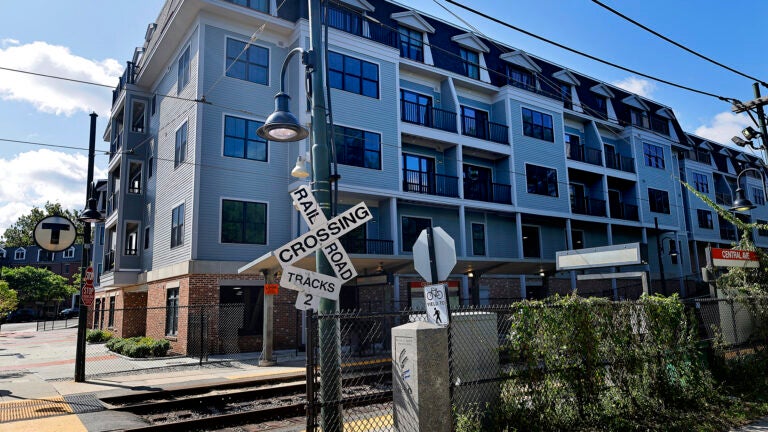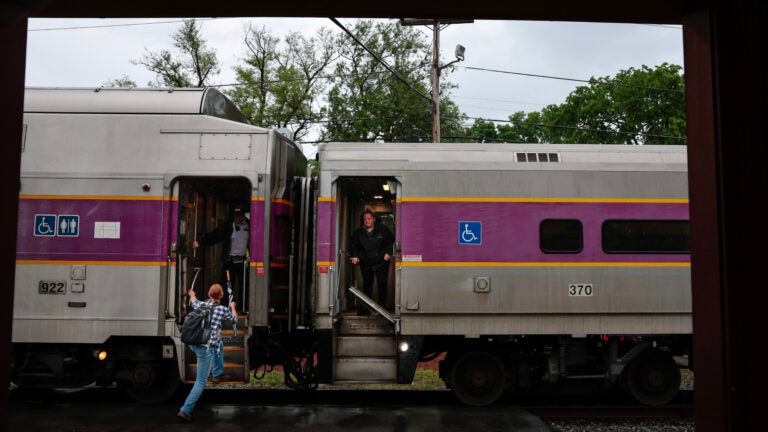Local News
In a June 6 decision, a Superior Court judge dismissed a set of lawsuits brought by nine towns. Here’s why.

On Friday, a Massachusetts Superior Court judge dismissed a set of lawsuits brought by nine towns challenging the MBTA Communities Act, a state law requiring municipalities with MBTA access to rezone for multi-family housing.
The lawsuits – filed by Duxbury, Hamilton, Hanson, Holden, Marshfield, Middleton, Wenham, Weston, and Wrentham – argued that the law amounts to an “unfunded mandate” and warned that increased housing density could overburden local infrastructure, such as roads and sewer systems. Middleborough filed a lawsuit against the state over similar claims, but reached a settlement at the end of March. As such, it was not included in the June 6 decision.
Superior Court Justice Mark Gildea rejected the towns’ “unfunded mandate” claims as “speculative,” noting the towns failed to provide specific evidence of financial impact or detailed plans for upcoming infrastructure projects.
“The Municipalities have neither pled specific costs for anticipated infrastructure costs, nor provided any specific timeline for anticipated construction projects,” Gildea wrote in the 40-page decision. “Instead, the only allegations and averments before the court are generalized comments about large-scale issues they foresee, which are insufficient to sustain the Municipalities’ claims.”
The decision marks another legal setback for towns resisting the MBTA Communities Act, which was enacted four years ago to spur housing development. Last year, the Massachusetts Supreme Judicial Court upheld the legality of the law (while questioning its enforceability) after Attorney General Andrea Campbell sued the town of Milton for failing to meet compliance deadlines.
The most recent suits followed a February opinion from State Auditor Diana DiZoglio’s office, which characterized the law as an “unfunded mandate” because it doesn’t provide specific funding for municipalities to comply.
Housing Secretary Ed Augustus praised the court’s ruling. “We are pleased the courts have again affirmed the intent of the MBTA Communities Law, and we look forward to working with the remaining communities to complete their zoning changes,” he said in a statement.
However, some communities included in the lawsuit are “disappointed” with the ruling.
Middleton Town Administrator Justin Sultzbach voiced frustration with how the law is being applied to communities like his. In a statement, he pointed out that despite Middleton being classified as an “adjacent community,” accessing transit from the town is highly impractical.
He gave the following example: A resident trying to get to Beacon Hill from Middleton without driving would have to walk along a route without sidewalks to a bus stop in another town, followed by multiple transfers and a final walk through Boston – totaling over three hours one way, he said.
“We appreciate the work of the Courts, but are disappointed by the overly technical use of the term ‘adjacent,’” Sultzbach said. “The intent of the MBTA Communities Act was to develop transit-oriented housing. If that 6+ hour round trip journey via a single out-of-town bus stop is considered adjacent – by any definition – I believe the Commonwealth has a lot of soul searching to do as we work together to develop transit-oriented housing in Massachusetts.”
When asked if Middleton plans to appeal the June 6 decision, Sultzbach told Boston.com the Select Board will hold an executive session on Thursday, June 12 “to discuss any and all options.”
The Superior Court’s decision comes as almost 30 towns that missed their end-of-2024 deadlines approach a July 14 compliance deadline extension. Ahead of the deadline, Wenham will bring a 3A zoning proposal to a vote at a Special Town Meeting on Monday.
Of the nine towns included in the “unfunded mandate” lawsuits, all but two are currently considered interim compliant with the law as of June 3; Marshfield and Middleton are currently considered noncompliant with the law.
According to state officials, 134, or 75%, of the 177 cities and towns subject to the law have adopted compliant zoning.
Sign up for the Today newsletter
Get everything you need to know to start your day, delivered right to your inbox every morning.



